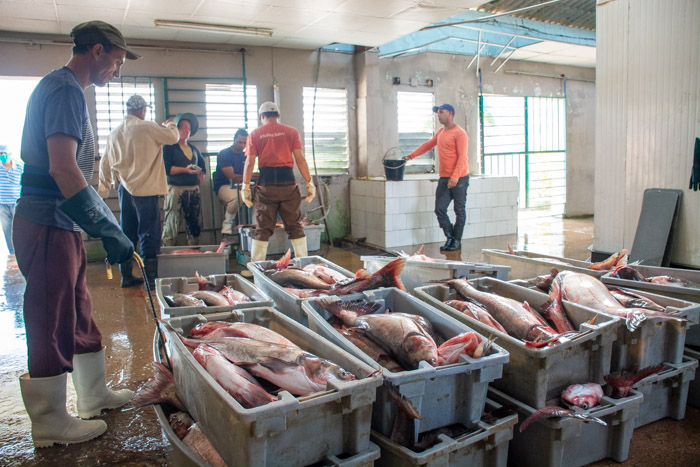
Camagüey, Oct. 2—The Fishing Industry Business Group (GEIP) conducted a case-by-case evaluation of its performance in this province and outlined strategies to reverse some lines of work that affect important production commitments.
Ereni Beltrán, vice president of this organization, emphasized the need to resize the proposed objectives, which will have a positive impact on increasing profits and thereby implement Resolution 87, implemented to improve workers' incomes.
She noted that deterioration persists in many key indicators, making it difficult to reduce costs. Therefore, it is essential to seek alternatives that will help successfully address the country's current complexities.
One of the topics of discussion in this expanded board of directors was the need to avoid waste and ensure that every invested resource is backed by the fulfillment of plans.
It was also considered that there are still many reserves in creating added value, something insufficiently exploited, although there are entities with positive balances whose experiences could be replicated.
Several interventions focused on how to better and more fully exploit installed capacities, such as hatchery centers, which should additionally promote actions aimed at expanding their work scope with other schemes.
At that point, a call was made to reassess the current selling prices of larvae and fingerlings, since their pricing is extremely low, which undermines a better economic balance for those entities.
Nelson Toledo, director of the Santa Cruz del Sur Fishing Company (EPISUR), said that the exchange generated by the visit was very valuable for his institution, as it seeks to grow as a state-owned enterprise.
He briefly addressed the current situation, highlighting the performance in the capture of lobster and conch, but not in the case of marine shrimp.
Among the areas they prioritize, he cited increasing exports, continuing to grow ties with other forms of economic management, and, in doing so, taking advantage of their industrial capabilities.
In the case of scale species, the work of Nuevitas was praised, where there has been a substantial improvement in its daily work.
Armando Pacheco Nápoles, director of PescaCam, highlighted that the meetings held in Minas, Camagüey, Sibanicú, Santa Cruz del Sur, and Nuevitas facilitated access to other ideas and approaches, and highlighted how much can and should be done in terms of payment systems and improving assortments.
"We have to improve our efficiency," he noted.
Iris Quiñones Rojas, director of Industry, explained that there has not yet been a greater flow of products to the domestic market in foreign currency, always without neglecting their quality and presentation.
There was also a call to give the required priority to renewable energies, considering the current complexities of the national electrical system, and to use financing to improve workers' housing in the sector.
Finally, a joint effort was requested to reduce deficits in relation to the annual plan. (Gilberto Rodríguez Rivero/Radio Cadena Agramonte Contributor) (Photo: Adelante Digital)